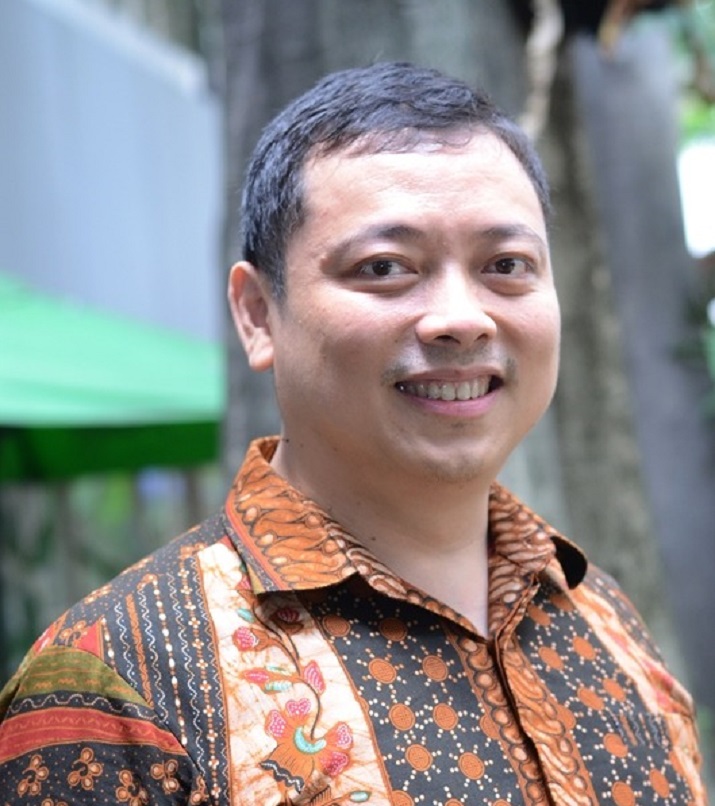
ASK
ME

REGISTER
NOW

Biography
Dr. Lukas completed his undergraduate education at the Bandung Institute of Technology in 1995, followed by his master's and doctoral degrees at Katholieke Universiteit Leuven in 1998 and 2003. He has expertise in Artificial Intelligence (AI), the Internet of Things (IoT), and Cybersecurity. As an instructor, Dr. Lukas teaches courses such as Artificial Intelligence, Big Data, and Cybersecurity, as well as practical courses related to technology and human-machine interaction. His works include important publications such as "Probing Time Series Multiplicative Model and Fuzzy Relation Methodologies," which introduces new methods for analyzing complex data, and "Time and Frequency Domain Feature Extraction Method of Doppler Radar for Hand Gesture Based Human to Machine Interface," which discusses the development of a hand gesture-based human-machine interface. Dr. Lukas has also published research on hotel customer classification using Support Vector Machine and developed a non-contact hand motion sensor based on radar. Another work, "Deep Learning Based Facial Emotion Recognition using Multiple Layers Model,"" demonstrates the application of a multi-layer model to enhance accuracy in recognizing facial emotions. Through these publications, Dr. Lukas makes significant contributions to the advancement of technology and human-machine interaction.
Education
Dr. Lukas completed his undergraduate education at the Bandung Institute of Technology in 1995. He then continued his studies at Katholieke Universiteit Leuven, where he earned his master's degree in 1998 and his doctoral degree in 2003.
Expertise
Dr. Lukas has expertise in Artificial Intelligence (AI), the Internet of Things (IoT), and Security. With this background, he is actively involved in research and development of technologies related to AI and IoT, as well as cybersecurity.
Teaching
As an educator, Dr. Lukas teaches various courses that include Artificial Intelligence, Big Data, IT Infrastructure, Cybersecurity, as well as two levels of Artificial Intelligence courses. Additionally, he teaches Image Processing & Voice Recognition, Image Processing, Engineering Practice in Industry Development and Industrial System Status, Problem-Solving Practicum, Thesis Proposal, Smart Monitoring System, Case Studies, and Thesis. With this comprehensive teaching, Dr. Lukas equips students with the knowledge and skills needed to face challenges in the technology industry.
Recent Publications
Dr. Ir. Lukas Mai, CISA, IPM, has produced a number of significant publications that contribute to the fields of technology and engineering, particularly in the development of human-machine interaction systems and data analysis. In 2020, he published two articles, one of which is titled "Probing Time Series Multiplicative Model and Fuzzy Relation Methodologies," where he discusses new methods in time series modeling and fuzzy relations, offering innovative approaches for analyzing complex data.
Additionally, in the article "Time and Frequency Domain Feature Extraction Method of Doppler Radar for Hand Gesture Based Human to Machine Interface," also published that same year, Dr. Lukas explains feature extraction methods in the time and frequency domains from Doppler radar. This research focuses on developing a hand gesture-based human-machine interface that enables contactless interaction, which is highly relevant in the era of rapidly evolving technology.
In 2021, Dr. Lukas continued his contributions by publishing several further studies, including "Classification of Hotel Customer Based on Support Vector Machine." In this publication, he applies Support Vector Machine methods to classify hotel customers, which can assist the hospitality industry in understanding customer preferences and behaviors.
Furthermore, in his work titled "Contactless Hand Gesture Sensor Based on Array of CW Radar for Human to Machine Interface," Dr. Lukas describes the development of a contactless hand gesture sensor based on a CW radar array. This research reflects advances in human-machine interaction, making it increasingly easier for users to interact with technological devices.
He also developed facial emotion recognition technology based on deep learning through the publication "Deep Learning Based Facial Emotion Recognition using Multiple Layers Model." In this research, Dr. Lukas demonstrates the use of a multi-layer model to enhance accuracy in recognizing facial emotions, which has the potential to pave the way for further applications in social interaction and smart technology. Through these publications, Dr. Lukas Mai continues to contribute to the advancement of science and technology in the fields of engineering and human-machine interaction.